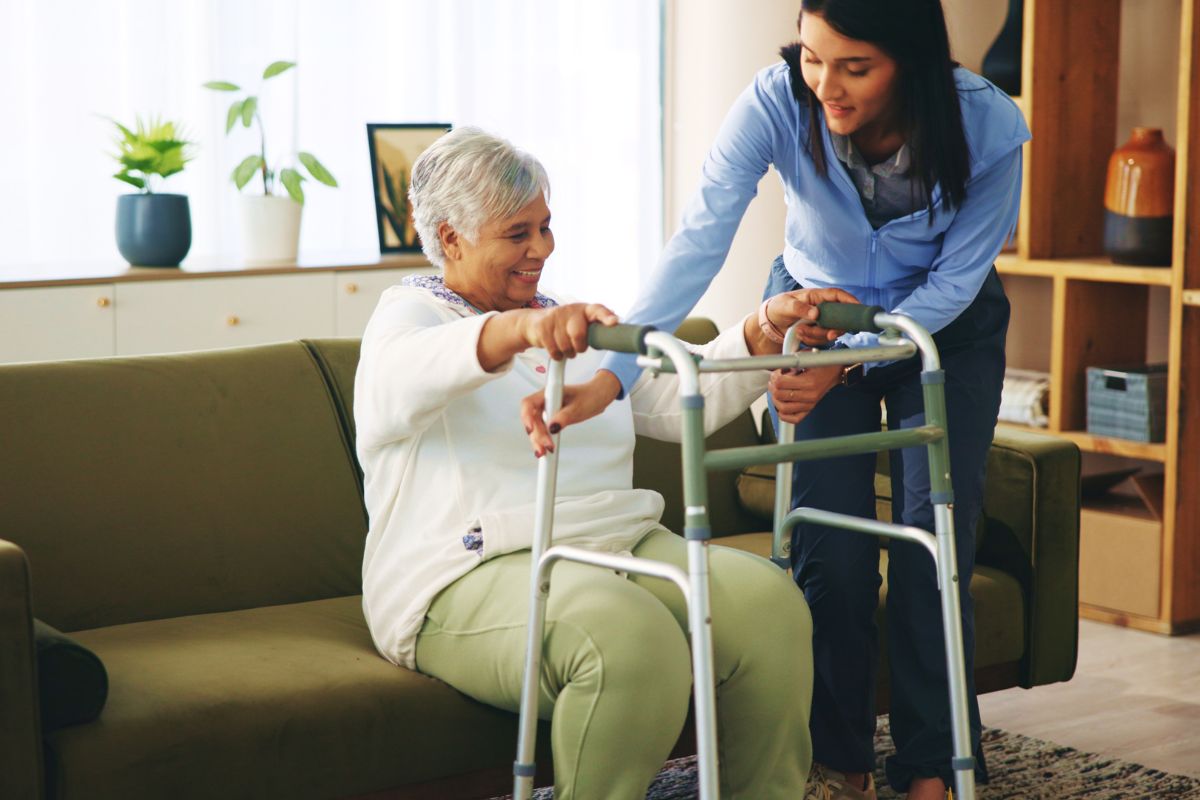
When choosing the best care option for your loved one, the decision often comes down to two main options: in-home care or a senior care facility. Both have benefits and challenges; the choice depends on your loved one’s unique needs, preferences, and circumstances.
This article explores the differences between in-home care and senior care facilities to help you make an informed decision for your family.
What Is In-Home Care?
In-home care allows seniors to receive support and assistance while remaining in the comfort of their own homes. Caregivers provide personalized, one-on-one care tailored to the individual’s needs, whether it’s assistance with daily activities, companionship, or specialized care for conditions like dementia.
Benefits of In-Home Care
- Familiarity and Comfort: Seniors stay in their homes, surrounded by their belongings and memories, which can be especially important for those with cognitive challenges.
- Personalized Care: Caregivers focus solely on the individual, providing customized support.
- Independence: In-home care promotes autonomy, allowing seniors to maintain routines and a sense of control.
- Flexible Scheduling: Families can choose the level of care needed, from a few hours a week to 24/7 support.
Challenges of In-Home Care
- Cost Variability: Depending on the required level of care, costs can add up.
- Home Modifications: Some homes may need adjustments, like ramps or grab bars, to ensure safety.
What Are Senior Care Facilities?
Senior care facilities, including assisted living and nursing homes, provide a structured environment where seniors receive professional care and access social activities and medical services.
Benefits of Senior Care Facilities
- Comprehensive Services: Facilities provide meals, housekeeping, medical care, and social activities under one roof.
- Social Opportunities: Seniors can interact with peers through group activities, outings, and shared dining experiences.
- Round-the-Clock Care: Nursing homes and some assisted living facilities offer 24/7 access to medical professionals.
- Specialized Care Options: Facilities often have programs for dementia, rehabilitation, and chronic conditions.
Challenges of Senior Care Facilities
- Loss of Independence: Moving to a facility can feel restrictive for some seniors.
- Cost: Senior care facilities, especially those offering extensive medical care, can be expensive.
- Emotional Adjustment: Some individuals may find leaving home and adapting to a new environment challenging.
Key Considerations When Choosing Between In-Home Care and Senior Care Facilities
1. Level of Care Needed
- In-home care may be ideal if your loved one requires assistance with basic daily activities.
- A senior care facility might suit advanced medical needs or constant supervision.
2. Independence and Preferences
- Seniors who value independence and wish to stay in a familiar environment may thrive with in-home care.
- Those who enjoy community living and social activities may benefit from a facility.
3. Cost
- Compare the cost of in-home care versus facility care, including any available insurance or government assistance.
- Remember to account for hidden costs, such as home modifications or facility fees.
4. Family Involvement
- In-home care allows family members to remain closely involved in daily routines.
- Senior care facilities offer families peace of mind, knowing their loved one is always supervised.
5. Health and Safety
- Consider whether your loved one’s home can be adapted for safety.
- Evaluate the quality of care and safety measures at local facilities.
How Home Instead Supports Families
At Home Instead, we specialize in providing personalized, compassionate in-home care tailored to your loved one’s needs. Our services are designed to promote safety, comfort, and independence, and include:
- Companionship: Providing social interaction and emotional support reduces loneliness and keeps seniors engaged.
- Personal Care: Assisting with bathing, grooming, and mobility to ensure dignity and well-being.
- Meal Planning and Preparation: Creating and preparing nutritious meals that cater to dietary needs and preferences.
- Transportation: Helping with errands, doctor’s appointments, grocery shopping, or visiting friends and family.
- Mobility Assistance: Supporting safe movement around the home or outdoors to maintain independence.
- Housekeeping: Assisting with light household tasks like laundry, cleaning, and organizing to maintain a safe and tidy environment.
- Memory Care: Offering specialized support for individuals with Alzheimer’s or dementia, ensuring their safety and comfort.
- Flexible Scheduling: Providing care when and how you need it, whether a few hours a week or round-the-clock support.
If you’re considering in-home care but aren’t sure if it’s the right choice, our team can provide a free consultation to discuss your family’s needs and help you make an informed decision. At Home Instead, we’re here to ensure your loved one feels cared for, supported, and empowered to live life to the fullest.
Choosing between in-home care and a senior care facility is personal and depends on the individual’s needs, preferences, and circumstances. Both options have their strengths, and the right decision prioritizes your loved one’s health, happiness, and well-being.
If you’re exploring care options, Home Instead is here to guide you every step of the way. Contact us today to learn more about our in-home care services and how we can support your family.


